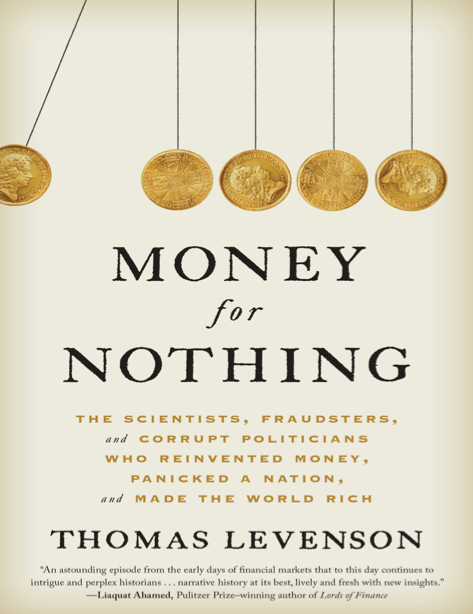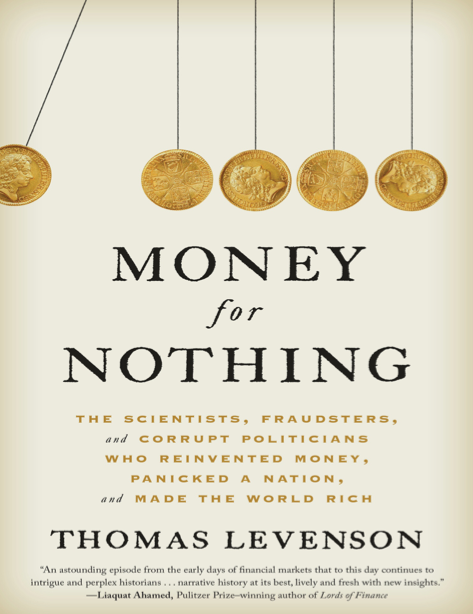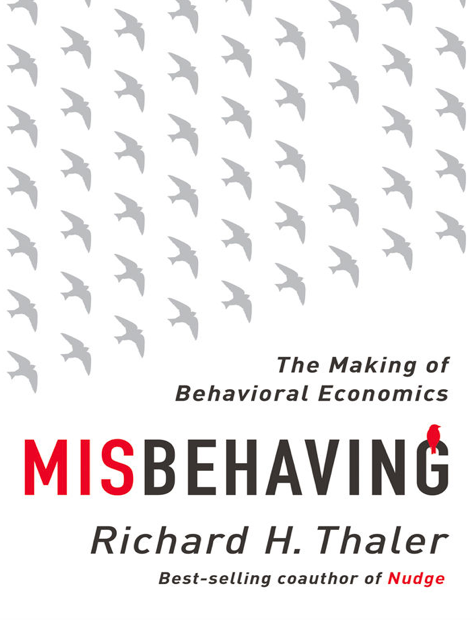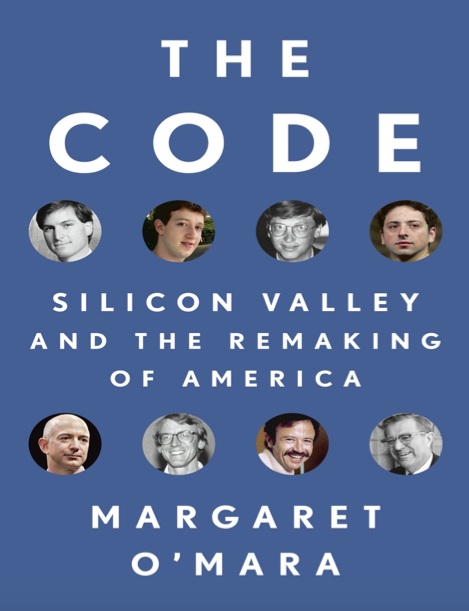Money for Nothing: The Scientists, Fraudsters, and Corrupt Politicians Who Reinvented Money, Panicked a Nation, and Made the World Rich | Thomas Levenson
![]()
![]()
Thomas Levenson Economic History Great Britain History History & Philosophy of Science History of Science Longlisted for McKinsey Business Book of the Year Award Financial Times Economics Book of the Year
- درباره کتاب
- مطالعه راحت
- بخشی از کتاب
- نظرات
The sweeping story of the world’s first financial crisis: “an astounding episode from the early days of financial markets that to this day continues to intrigue and perplex historians . . . narrative history at its best, lively and fresh with new insights” (Liaquat Ahamed, Pulitzer Prize–winning author of Lords of Finance)
A Financial Times Economics Book of the Year ● Longlisted for the Financial Times/McKinsey Business Book of the Year Award
In the heart of the Scientific Revolution, when new theories promised to explain the affairs of the universe, Britain was broke, facing a mountain of debt accumulated in war after war it could not afford. But that same Scientific Revolution—the kind of thinking that helped Isaac Newton solve the mysteries of the cosmos—would soon lead clever, if not always scrupulous, men to try to figure a way out of Britain’s financial troubles.
Enter the upstart leaders of the South Sea Company. In 1719, they laid out a grand plan to swap citizens’ shares of the nation’s debt for company stock, removing the burden from the state and making South Sea’s directors a fortune in the process. Everybody would win. The king’s ministers took the bait—and everybody did win. Far too much, far too fast. The following crash came suddenly in a rush of scandal, jail, suicide, and ruin. But thanks to Britain’s leader, Robert Walpole, the kingdom found its way through to emerge with the first truly modern, reliable, and stable financial exchange.
Thomas Levenson’s Money for Nothing tells the unbelievable story of the South Sea Bubble with all the exuberance, folly, and the catastrophe of an event whose impact can still be felt today.
Editorial Reviews
Review
“[A] vivid narrative . . . Mr. Levenson pauses to describe the reform of the English coinage and to ponder the nature of money itself. This last topic could hardly be timelier.”—Wall Street Journal
“A compelling read . . . a vivid account of the development of share trading in the coffee shops of Exchange Alley in the City, with fascinating asides.”—Financial Times
“Does a stock market crash and a plague sound somehow familiar? Thomas Levenson’s new book is proof—very cleverly told—of how enlightening history can be. There is no excuse not to learn from the past.”—Andrea Wulf, author of The Invention of Nature
“Superb, fascinating, and totally timely, Money for Nothing is a gripping history of the South Sea Bubble by a scholar who makes complicated and subtle matters not just accessible but fun—the story of a world crisis with a flashy cast of grifters, scientists, politicians, and charlatans that Levenson makes utterly relevant to the 2008 financial crisis and 2020 pandemic. . . . Essential reading.”—Simon Sebag Montefiore, author of Jerusalem and The Romanovs
“Levenson is a brilliant synthesizer with a grand view of history. Here is the birth of modern finance amid catastrophe and fraud—a gripping story of scientists and swindlers, all too pertinent to our modern world.”—James Gleick, author of Time Travel: A History
“Inspired by Isaac Newton’s example, clever schemers sought to conquer the chaos of human affairs by abstracting financial value from tangible goods. Their calculations unleashed the notorious South Sea Bubble, which destroyed fortunes and roiled nations. Thoroughly researched and vibrantly written, Money for Nothing captures those heady, heartbreaking times, which still hold lessons for today.”—David Kaiser, author of Quantum Legacies: Dispatches from an Uncertain World
“The story of government debt finance, which sounds boring but definitely isn’t . . . an enthralling account of an economic revolution that emerged from a scandal.”—Kirkus Reviews (starred review)
About the Author
Thomas Levenson is a professor of science writing at MIT. He is the author of several books, including The Hunt for Vulcan, Einstein in Berlin, and Newton and the Counterfeiter: The Unknown Detective Career of the World's Greatest Scientist. He has also made ten feature-length documentaries (including a two-hour Nova program on Einstein) for which he has won numerous awards.
با وجود اینکه هنوز بسیاری از کتابخوانها [ی حرفهای] ترجیح میدهند از کتاب چاپی برای مطالعه استفاده کنند ولی شمار کتابخوانهایی که بهتدریج از کتاب الکترونیک به عنوان مکمل یا منبع اصلی مطالعه استفاده میکنند کم نیست. فارغ از نوآوریهای جالبتوجه در زمینهی کتابخوانهایی همانند Kindle کمپانی آمازون، امکان و قابلیت نرمافزاری ساده، کارآمد و در دسترس مطالعهی کتاب با فرمت ePub از نظر بسیاری از کتابخوانها دور مانده است؛ بر اساس تجربهی مستقیم ما، شاهد بودهایم که بسیاری از افرادی که به صورت حرفهای به دنبال کتابهای زبان اصلی برای مطالعه روی کامپیوتر، تبلت و موبایل خود هستند با فرمت ePub آشنایی درستی ندارند.
پر واضح است که لمس کتاب بهصورت فیزیکی و بوی خوش کاغذ تجربهای لذتبخش و بیمانند است که همچنان در بین کتابخوانهای حرفهای در سراسر دنیا هواداران بسیاری دارد. البته، وقتی یکی از دغدغههای کتابخوان سهولت مطالعهی کتاب تحت هر شرایطی باشد اینجاست که نیاز به استفاده از کتاب الکترونیک حس میشود. با توجه به ویژگیهای مناسب کتابهای الکترونیک با فرمت ePub نگرانی ضعیف شدن بینایی و خستگی چشم بر اثر نگاه مستقیم به صفحهی نمایش تا حد بسیار زیاد و قابلتوجهی کاسته میشود.
کتاب الکترونیک با فرمت ePub این قابلیت را به خواننده میدهد تا بتواند رنگ زمینه، نوع فونت و سایز فونت را برای مطالعهی کتاب خود انتخاب کنند. همچنین خواننده این امکان را دارد که روی نوشته یادداشت بنویسد، جملهای را هایلایت کند و یا صفحه یا صفحاتی از کتاب را بوکمارک کند.
خوشبختانه نرمافزارهای کتابخوان الکترونیکی رایگان بسیاری وجود دارد که از فرمت PDF و ePub پشتیبانی میکنند. این کتابخوانهای الکترونیک قابل نصب روی انواع موبایلهای اندرویدی، آیفون، لپتاپهای ویندوزی و مکبوک است.











هنوز نظری ثبت نشده
اولین نفری باشید که نظر میدهید
ثبت نظر